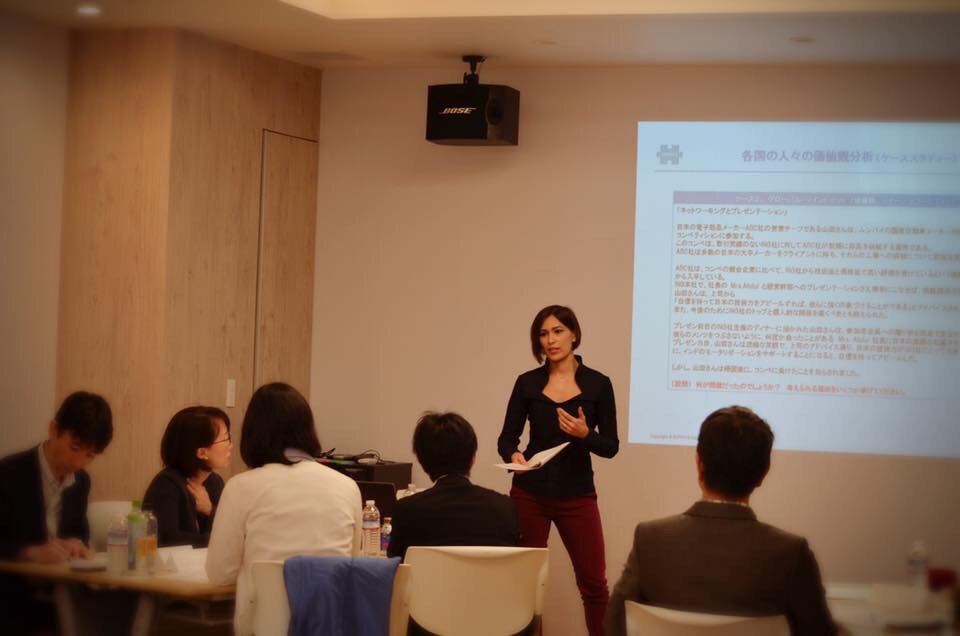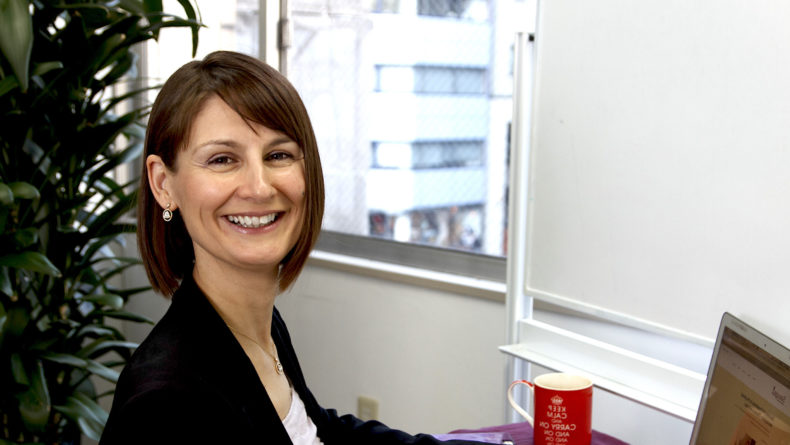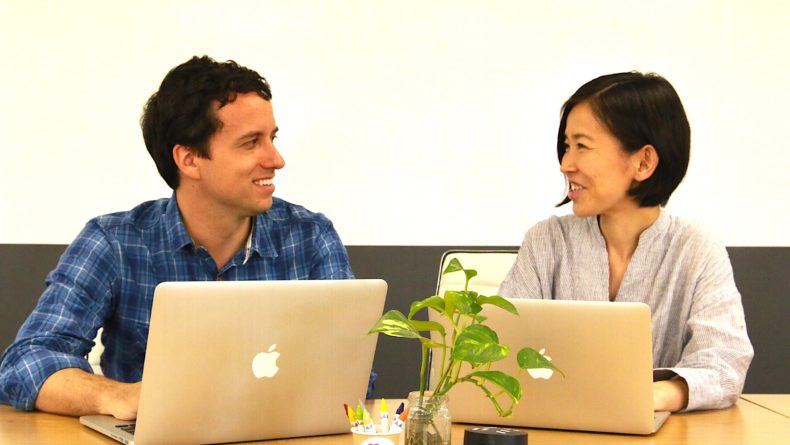Savvy Spotlight: Cross-Cultural Communication Master Fariza Abidova
One Woman's Dedication To Boosting Global Communication Skills
A life of loosening the knots of global miscommunication.
Fariza Abidova aspires for her online global business expansion platform, Trusted Corporation, “to be for business what Google is for information.” It’s ambitious for the 32-year-old serial entrepreneur as the company was launched only last year, but one thing you’d learn about her is that she’s never been put off by a challenge.
Growing up in a Muslim family in Uzbekistan, she was determined to fulfill her childhood dream of studying in Japan despite her family not been able to fund it. In one year she started from scratch to reach an advanced level of Japanese in order to secure a scholarship from Japan’s Ministry of Education, Culture, Sports, Science and Technology.
 © Photo by Victor Gonzalez
© Photo by Victor Gonzalez
A fluent speaker of seven languages, she soon developed an interest in cross-cultural communication and how it might affect businesses in Japan.
Abidova, founder and CEO of two firms, spoke to Savvy Tokyo about cultural differences in Japan, why she continues to look for opportunities, and how she manages it all.
What brought you to Japan?
I knew about Japan through samurai and ninja movies that my father used to watch. I didn’t know it was Japan but I was curious about it. At university, I studied English linguistics and Japanese as a second language because kanji were really interesting for me. Every letter has a meaning and the order in which it is written is cool.
Since I was 12 it was my dream to go abroad and experience Japanese culture. When I won the scholarship I came to study in Kobe. It’s a great, international city. The people would stop me on the street and ask where I was from; they were really friendly. I really love Japan because of that.
How did you get into cross-cultural relations?
I was always interested in speaking foreign languages and talking to foreign people. My home is one of Uzbekistan’s ancient cities. When I was a child there were so many tourists in the bazaars, so I always wanted to talk to them. I practiced my English and Japanese by guiding them for free.
At Kobe University I researched why domestic and foreign students found it difficult to become friends. I found that both groups wanted friendship but the Japanese students were shy or felt that their English skill was not good enough. Meanwhile, the foreign students felt that the Japanese students didn’t want to include them.
The students’ lives could have been so rich if it weren’t for the misunderstanding.
The miscommunication was so simple yet the effect was so big. The students’ lives could have been so rich if it weren’t for the misunderstanding. I was curious if there were similar situations in business, impacting management or operations. I interviewed 200 Japanese managers who worked abroad in overseas branches as well as foreign staff working for Japanese companies and found many cases of miscommunication.
Why did you start SOPHYS Corporation?
A friend suggested I provide solutions for Japanese companies affected by misunderstandings because they need not only English language skills but also cultural communication training. I made a database of problems that had happened in my research sample focusing on Asian cultures and then made seminar content such as role plays so that Japanese and foreign staff could have hands-on training.

How was the experience?
For two years I didn’t have any income but I kept doing free seminars in famous organizations to build my brand. As a result of those seminars, I got an offer from a company that wanted to sell my content to their existing client. The client wanted cross-cultural communication training but the company couldn’t offer it so they asked for me. After getting my first client, I increased the number of agencies with which to do business.
As Japan becomes more global, is miscommunication lessening in Japanese companies?
There are more misunderstandings these days because more companies are hiring foreign people. The managers suddenly have foreign subordinates who they don’t know how to communicate with or manage. In the past, manufacturing companies would send one or two Japanese people to manage factories abroad but now sales people and engineers are also being sent. As more Japanese people are going abroad, more miscommunication happens.
[M]ost Japanese companies now know they need to provide a [communication] training program but they don’t have strategic plans.
Compared to the situation six or seven years ago, most Japanese companies now know they need to provide a training program but they don’t have strategic plans on how to evaluate it, which seminar they should provide, or what result they should expect.
I feel also foreign staff in Japan try to adjust too much, resulting in Japanese people not having to try to understand them. After some time the foreign staff feel stressed but don’t say their true feelings, to maintain harmony. Then they lose motivation and quit without the Japanese side knowing the reason. I always tell my foreign audience to try to understand their Japanese counterparts but also share the business culture of their home country so the Japanese staff understand it better.
What inspired you to start a second business?
I couldn’t scale SOPHYS by sending other facilitators to the seminars because my clients wanted me to deliver the seminars. That’s why I decided to invest in another related business, to help Japanese companies connect with business opportunities worldwide.
How did you get the idea?
In my seminars, I was inviting famous foreign CEOs to be guest speakers. My clients knew that I have strong networks with the foreign community in Japan so when they had projects related to global business expansion they asked me.
By doing the business, I understood that it’s very analog. Japanese companies without a network abroad ask someone in Japan who then asks a Japanese person in the desired country who then tries to find a sales channel, but it may take six months or one year before one is found. The client may give 3% to each broker, which totals a big amount. Meanwhile, foreign companies may make inquiries in Japan but not receive a response.
Both sides depend on limited connections. I wanted to give them more opportunities, and a platform that is effective, practical and direct.

What has been the biggest challenge?
Trusted Corporation is a new concept for Japanese people who are used to doing business face to face, so they are hesitant about it. The platform is in English because it needs to be a global platform but some Japanese companies are unsure about their staff’s English for responding to inquiries from abroad.
What are you doing to overcome these problems?
I am partnering with companies that can act as global project advisors, helping these Japanese companies with strategic planning. My idea is to offer a remote global division who can interact with Japanese companies in Japanese but communicate with potential business partners abroad in English while supporting screening, contract creation and so on.
What’s your next goal?
It’s to find the best 500 companies from all over Japan with really innovative, exclusive solutions and a strong intention to do business globally. I want to then translate their information into English and create video content with an international perspective to help them operate on Trusted.
What do you do in your free time?
I do weight lifting four times a week; I should slow down a bit but I’ve been doing it for three years and it’s great. It’s similar to business. You have a goal to increase the weight by one or two kilos every two weeks so there is a concrete plan. Once I achieve that small goal, it’s the best moment. I can now deadlift 90 kilos and next week I’m lifting 95. When I’m lifting I only concentrate on that so I can relieve stress and get refreshed.
To learn more about Fariza Abidova’s business, see here.
















Leave a Reply